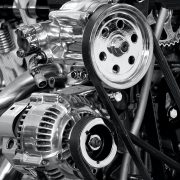What To Do If You Are Involved In A Trucking Accident

While driving safely can reduce the chances of an incident occurring (in the same way that solid health and safety procedures can reduce the chances of employees getting injured at work), preventive measures only go so far. As such, it’s crucial that you are aware of the steps to follow after an incident, too.
With that in mind, here’s everything you need to do following a trucking accident.
Try to keep your cool. Whether you’re actively involved in the accident or a witness, a trucking accident can be incredibly distressing – which means it’s likely to send your stress and anxiety levels through the roof. However, in order to be as useful as possible to both yourself and those around you, it’s crucial that you’re able to keep your cool. This will allow you to process the situation and act rationally.
Call 911. Following an accident on the roadside, it’s also important that you call the relevant authorities – i.e., the police and ambulance services. This will ensure that everyone involved receives all-important medical attention, while also helping to keep others on the road safe. For example, the police may block or close certain sections of the road.
At this stage, do not try to place blame or assume responsibility for the accident – this information will be uncovered later – and getting help and staying safe is the most important matter. You should also follow typical emergency protocols for roadside incidents, such as putting on your hazard lights to warn oncoming traffic. Of course, you should step out of the vehicle (if safe to do so) and find a place to stand that puts you out of harm’s way. While waiting for emergency personnel to arrive, offer support to those who need it where you are able.
Get medical treatment. Completing a medical assessment, even if you feel fine is crucial – especially as this kind of incident often results in severe industries. While some injuries, such as broken bones are immediately obvious, and others may take a little time to present symptoms, such as concussions.
As such, you should ensure that you meet with a medical professional as soon as possible. They will be able to assess the severity of your injuries and suggest your next step. For example, you may be sent for surgery or interventional treatments, or given the all-clear to go home. Either way, getting this treatment is important and you should continue to monitor your symptoms in the days and weeks following your incident – reaching out to a healthcare provider immediately should something change.
Gather evidence. Whether you will be making a claim through your insurance provider or reaching out to an 18-wheeler truck accident lawyer, it’s important that you gather evidence to support your claim and ensure you receive as much compensation or financial support as possible. After all, between medical attention, medication and repair fees, the aftermath of an automotive accident can rack up a lot of expenses (and obliterate your savings account).
The more evidence you have to back up your story – the better. This is particularly pertinent when you consider the fact that insurance providers for the other parties involved may be looking to shift the blame to reduce the amount they have to pay out and the evidence you provide can counter their ability to do so.
You should gather a range of evidence:
- Name and contact details of all involved, including any potential witnesses present.
- Licence plate number of all involved.
- Witness testimonies and reports.
- Pictures of the damages caused to your vehicle(s).
- Pictures of the incident, or dashcam footage.
- Evidence of injury, such as medical documentation and reports from your healthcare provider.
Prioritize your recovery. The amount of time it will take for you to recover from this accident will vary, depending on the severity of your injuries. After all, in some cases, you may be required to spend a significant amount of time off work in order to rest and recover properly. This can be incredibly frustrating, especially if it is resulting in a loss of income or cancelled plans.
However, no matter how keen you may be to return to normality, it’s important that you follow all medical advice devoutly. As such, even if you are feeling a little better – if your doctor told you to stay off your feet for a month, you must do so. Otherwise, you’re only prolonging your recovery and putting your health at risk once again. During this time, try not to refuse help from those around you. Remember that if the tables were turned, you’d offer the same support to them and there’s no shame in asking for help during your recovery.
Talk openly about how you are feeling. It’s important to note that the emotional fallout that results from a truck or automotive accident can be just as debilitating as a physical injury. During this time, it’s normal to deal with a whirlwind of emotions, from anger to anxiety. According to a recent study, “9% of all automotive accident victims go on to develop post-traumatic stress disorder”. As such, it’s clear that caring for your mental health is crucial during this time period – whether you reach out to a friend, family member or licensed professional.
Return to the open road slowly. It’s only natural to feel a little nervous about getting behind the wheel again after an incident of this nature – whether you drive a car or a truck. As a result, it’s important that you start small, so as to not over face yourself and regain some of your initial confidence. Start with shorter journeys, before gradually increasing the amount of time you spend behind the wheel.











Leave a Reply
Want to join the discussion?Feel free to contribute!